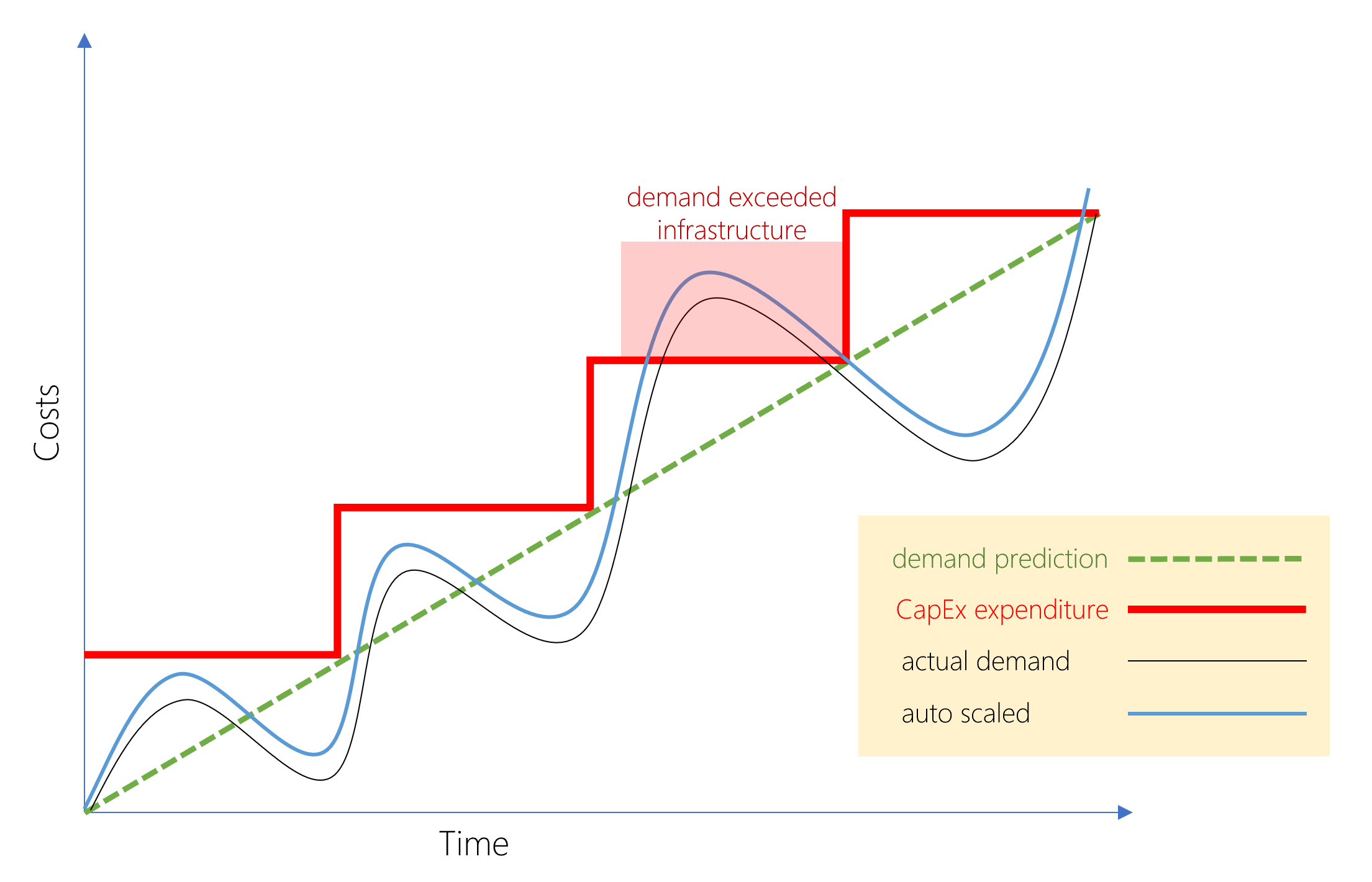Capital Expenditure (CapEx) vs Operational Expenditure (OpEx)
10 Jan 2023
- Before: up-front cost in hardware and infrastructure to start or grow a business (CapEx)
- With cloud: Use services without significant upfront costs or equipment setup time (OpEx)
- 📝 Hybrid solution = combine both in cloud with using both on-premises (CapEx) and cloud (OpEx)
- Also possible to have CapEx in cloud with e.g. Azure Reserved VM Instances
- CapEx model is also sometimes use in cloud
Capital Expenditure (CapEx)
- Spending of money on physical infrastructure up front
- and then deducting that expense from your tax bill over time.
- An upfront cost, which has a value that reduces over time.
Costs of CapEx
- E.g. server, storage, network, backup & archive, organization continuity and disaster recovery, datacenter infrastructure, technical personal.
Benefits of CapEx
- Plan your expenses at the start of a project or budget period.
- Your costs are fixed, meaning you know exactly how much is being spent.
- 💡 Appealing when you need to predict the expenses before a project starts due to a limited budget.
Operational Expenditure (OpEx)
- Spending money on services or products now and being billed for them now.
- There’s no upfront cost: You pay for a service or product as you use it
- Deduct expense from your tax bill in the same year.
Billing of OpEx
- As soon as the provider provisions resources, billing starts
- your responsibility to de-provision the resources when they aren’t in use so that you can minimize costs.
- Cloud computing can bill in various ways e.g.
- Number of users, CPU usage time, allocated RAM, I/O operations per second (IOPS), and storage space.
- Billing at the user or organization level.
- Pay-per-use (or subscription model)
- Designed for both organizations and users
- billed for the services used, typically on a recurring basis
- E.g. when using a dedicated cloud service, you could pay based on server hardware and usage.
Costs of OpEx
- Leasing software and customized features
- Scaling charges based on usage/demand instead of fixed hardware or capacity.
- 💡Plan for backup traffic and disaster recovery traffic to determine the bandwidth needed.
Benefits of OpEx
- CapEx challange: Demand and growth can be unpredictable and can outpace expectation

- Companies wanting to try a new product or service don’t need to invest in equipment
- Instead, they pay as much or as little for the infrastructure as required.
- OpEx is particularly appealing if the demand fluctuates or is unknown
- Enables cloud agility
- Ability to rapidly change an IT infrastructure to adapt to the evolving needs of the business
- Manage your costs dynamically, optimizing spending as requirements change.
- E.g. service peaks one month => pay more, demand drops next month => pay less
